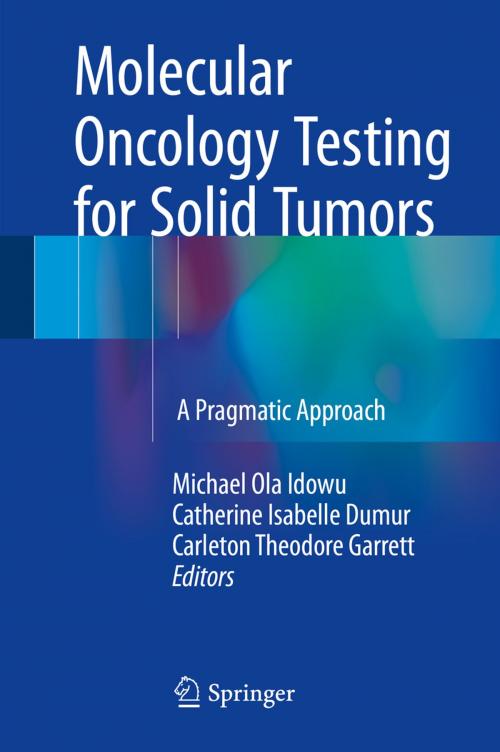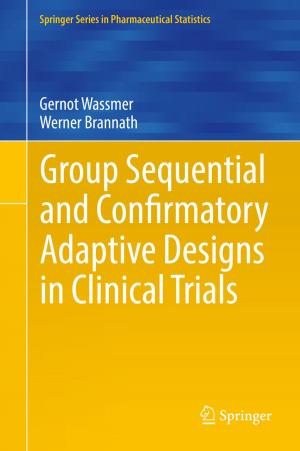Molecular Oncology Testing for Solid Tumors
A Pragmatic Approach
Nonfiction, Health & Well Being, Medical, Specialties, Pathology, Oncology| Author: | ISBN: | 9783319163048 | |
| Publisher: | Springer International Publishing | Publication: | August 18, 2015 |
| Imprint: | Springer | Language: | English |
| Author: | |
| ISBN: | 9783319163048 |
| Publisher: | Springer International Publishing |
| Publication: | August 18, 2015 |
| Imprint: | Springer |
| Language: | English |
Familiarity with and understanding molecular testing is becoming imperative for practicing physicians, especially pathologists and oncologists given the current explosion of molecular tests for diagnostic, prognostic and predictive indications.
Molecular Oncology Testing for Solid Tumors is designed to present an up to date practical approach to molecular testing in a easy to understand format. Emphasis is placed on quality assurance (pre-analytic, analytic and post-analytic) and test interpretation, including but not limited to: the important role of pathologists in ensuring specimen adequacy for molecular testing; factors to consider in choosing platforms for molecular assays; advantages and limitations inherent to common assays/platforms that pathologists need to communicate effectively with clinicians; the importance of required quality assurance measures to ensure accurate / reproducible results; pitfalls in test interpretation (including different types of artifacts that may lead to False Positive or False Negative interpretations); test reporting using standard nomenclature; review of the current and future potential utility of next-generation sequencing in oncology.
All chapters are written by pathologists and clinicians experienced in practical applications of molecular tests for solid tumors. The uniqueness of this textbook is the use of a standardized template for each of the molecular tests being discussed followed by a discussion of relevant quality assurance issues to ensure focused and efficient presentation of information. This will enable readers to easily understand the Order, Report and Evaluate (ORE) process of molecular tests. Lastly, summary tables of all the molecular assays and mutations discussed in the text are provided as an appendix for quick reference. For readers interested in more detailed information, a link to websites where additional information can be obtained is provided.
Familiarity with and understanding molecular testing is becoming imperative for practicing physicians, especially pathologists and oncologists given the current explosion of molecular tests for diagnostic, prognostic and predictive indications.
Molecular Oncology Testing for Solid Tumors is designed to present an up to date practical approach to molecular testing in a easy to understand format. Emphasis is placed on quality assurance (pre-analytic, analytic and post-analytic) and test interpretation, including but not limited to: the important role of pathologists in ensuring specimen adequacy for molecular testing; factors to consider in choosing platforms for molecular assays; advantages and limitations inherent to common assays/platforms that pathologists need to communicate effectively with clinicians; the importance of required quality assurance measures to ensure accurate / reproducible results; pitfalls in test interpretation (including different types of artifacts that may lead to False Positive or False Negative interpretations); test reporting using standard nomenclature; review of the current and future potential utility of next-generation sequencing in oncology.
All chapters are written by pathologists and clinicians experienced in practical applications of molecular tests for solid tumors. The uniqueness of this textbook is the use of a standardized template for each of the molecular tests being discussed followed by a discussion of relevant quality assurance issues to ensure focused and efficient presentation of information. This will enable readers to easily understand the Order, Report and Evaluate (ORE) process of molecular tests. Lastly, summary tables of all the molecular assays and mutations discussed in the text are provided as an appendix for quick reference. For readers interested in more detailed information, a link to websites where additional information can be obtained is provided.















